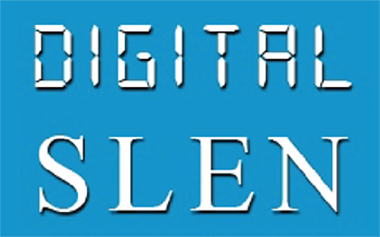IESL Charter in the era of ECSL
By : Eng. Arjuna Manamperi
When I graduated as an engineer from the University of Peradeniya in 1981, like some of my ambitious colleagues, I set a clear target to become a Chartered engineer, as soon as possible. Then we knew IESL as the one and only professional body for engineers in Sri Lanka and the Charter would pave the way for promotions, salary increases, and social recognition even in the private sector where I worked. Thus, I became an Associate Member of IESL in 1982 and obtained my Charter in 1986 and benefitted from the career growth resulting from the achievement.
At that time, two state universities produced about 500 graduate engineers a year. There was no Act regularizing the profession of engineering and for all purposes, the IESL Charter certificate was a “trophy of achievement “ than a legal necessity to practice. Interestingly though, Charter (local or international) had its place among engineers. We knew, like Justices of Peace, we could sign certain endorsements as “trusted professionals“ in the society we worked. Chartered Engineers were technocratic leaders known to the Public and we had “earned respect”
However, today, to practice engineering one must register with ECSL and registrants are legally liable to the society for the services they render. The Professional Code of Conduct is more than a piece of paper. It’s a contractual undertaking.
Further, there is an added legal responsibility on IESL to ensure it’s members who are eligible for mandatory registration with ECSL are of superior professional caliber and conduct. Since IESL Charter is the pinnacle of professional accountability in the engineering profession, the Institution and its members must comprehend this social accountability beyond the “trophy certificates”.
Establishment of ECSL
Engineering Council Sri Lanka (ECSL) was established in 2018 as per the ENGINEERING COUNCIL, SRI LANKA ACT, No. 4 OF 2017. It is the regulatory body governing the practice of engineering and its practitioners. ECSL gazettes are legally binding documents with the society it serves. When ECSL Registries show case licensed practitioners, it has a legal responsibility towards the society about their quality of services and standards. All engineering practitioners in Sri Lanka should register with ECSL annually. Three categories of IESL members - Corporate Members, Associate Members, Affiliate Members - are eligible to register with ECSL https://ecsl.lk/. ECSL has two categories of engineering practitioners; CEng and IEng who are “certified by a standardized process “ adopted by IESL and IIESL, respectively.
IESL Charter is About Professional Standards
IESL certifying process (Charter Process) has, minimum number of months for on the job training under supervision, minimum number of months for on the job experience with responsibility, documented / certified evidence of experience, etc. There are some prerequisites to get into the Charter Process that are decided by the IESL Council from time to time with guidance from the IESL Professional Standards Management Committee. Charter Process https://iesl.lk/index.php?option=com_content&view=article&id=26&Itemid=144&lang=en The “Charter Process” is defined by IESL and not by any external bodies. That’s how standards of professionalism is set in any country. However, organizations like IESL can choose to be guided by best practices of similar professional bodies. IESL is a full member of the Washington Accord (an international agreement on accreditation of engineering degree programs) https://www.ieagreements.org/accords/washington/ and a signatory to the International Professional Engineers Agreement www.ieagreements.org/agreements/ipea/. IESL is about to become a full member of the Sydney Accord (an international agreement on accreditation of engineering technology education programs) https://www.ieagreements.org/accords/sydney/
Ensuring Professional Standards of IESL Charter
Like any quality standard, “conditions” to be fulfilled to become a CEng do not change often although the process mechanisms could change (instead of handing over physical files of documents to the IESL Membership Department, uploading them online)
On the other hand, industry / economic conditions where the CEng practices, often change. Thus, meeting those market challenges, while maintaining professional standards expected by IESL from its Charter aspirants, is essential to ensure superior quality of a certified senior practitioner (CEng) to ECSL
Points of view
- IESL Charter process is carefully standardized by PSMC and approved by the Council to ensure the professionalism of a CEng and should not be changed often. Any suggestions to change should be deliberated by IESL PSMC in dedicated meetings to ensure any changes are forward looking and not stop gap measures.
- There is a minimum period of four years to fulfill Charter requirements, Yet,CEng status is not a time bound delivery that Charter candidates should take for granted at the expense of professional standards expected by IESL/ ECSL. Aspiring engineers should take time and seek professional opportunities to effectively establish the achievement of expected standards of training and Skills
- IESL should implement all possible changes to the Charter Process service delivery methods to improve its efficiency and reduce cycle time, without sacrificing effectiveness of the out put - a CEng with assured professionalism
- Employers too, have a legal and social responsibility as a result of ECSL. Responsible dialogue between employers (public and private), IESL and ECSL is much needed,. The dialogue should focus on societal benefits delivered by professionals!
 Eng. Arjuna Manamperi CEng, FIE (Sri Lanka), MS , BSc , MBA
Eng. Arjuna Manamperi CEng, FIE (Sri Lanka), MS , BSc , MBA
Council Member, Engineering Council Sri Lanka
Vice President & Chairman - National Issues Committee, OPA Sri Lanka
Vice Chairman, ICT Industry Skills Council
Former Vice President, Chairman CPDC & Chairman MESC of IESL
